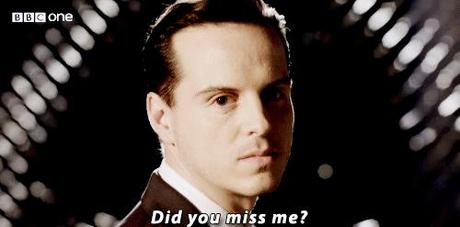Few shows have had as much build up as the third season of Sherlock. The shows popularity had gone through the roof by the end of the sixth movie length episode, followed by more than a year waiting on a cliff-hanger. Everyone wanted to know how Sherlock faked his death, and where they would take things next. So…did it pay off?
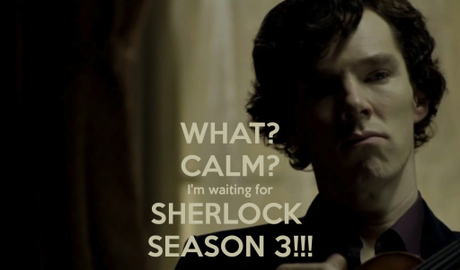
#1 – The Empty Hearse
I’ll have to give the show credit for not hinging the success of the new season on explaining how Sherlock pulled off his fake death. This would’ve been a make it/break it moment and instead of tackling it head on the writers side-step the explanation and show a number of versions ranging from comic to plausible. It is revealed that during intervening years Sherlock has been dismantling Moriarty’s international criminal network. It’s a shame this isn’t expanding on because we’d quite like the details.

Back in the present, Sherlock surprises Watson (in the middle of his proposal to girlfriend Mary), donned in a disguise, and the two re-establish their working friendship. Unlike earlier episodes this season debut lacks a definitive mystery that shapes the story. Mycroft sets Sherlock the task of hunting a terrorist looking to emulate Guy Fawkes, but there’s other side missions to take up time. This works in the episodes favour, setting a rapid fire pace that covers extensive ground without feeling skittish. The reveal of a new nemesis is brief, but intriguing ..and there’s not much else to say on the matter.
The most notable feature of this episode – and possibly it’s main criticism – is the amount of time dedicated to fan service. It feels as though they have used the barmy ramblings of the internet as the basis for the different versions of Sherlocks ‘death’, even going as far as depicting a romantic relationship between Sherlock and Moriarty. Phillip Anderson and his cohorts could be a parody of fan culture, but the show doesn’t take them in that direction. A bit of fan service here and there is all well and good, it makes the viewers feel appreciated, but this episode vers into the territory of goofy on more than one occasion. The waiter routine, the game of ‘Operation’…it gets a little silly.
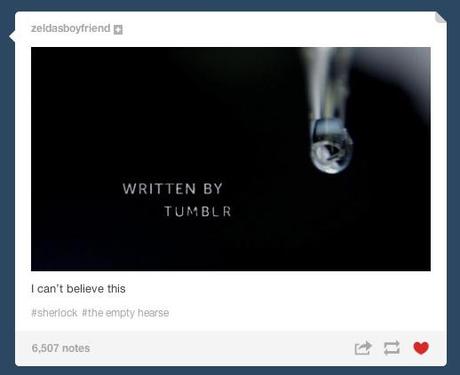
#2 – The Sign of Three
The middle part of this trilogy of episodes is the strongest, using a great framing device for a classic murder mystery. Following the engagement of Watson and Mary we skip ahead to the wedding. After being offered the role of Best Man Sherlock has dedicated his remarkable mind to organising the wedding. This includes scaring old boyfriends, arranging the seating and writing the perfect speech. This is presented in flashback along with a mystery wherein a Beefeater dies in highly mysterious circumstances. After coming off duty he is found stabbed to death in the shower with no sign on a perpetrator or weapon.

Did anyone else notice that this was Dean from ‘Harry Potter’?
With the wedding well underway and Sherlock’s speech proving a surprising success the great detective comes to the realisation that there is a murder being plotted right under his nose. Whilst giving his speech Sherlock must deduce who the potential victim and murderer is. It al links back to a character dubbed the ‘Mayfly’, a man taking the identities of recently deceased single men and seducing women. It all links to Watson’s controversial and seclusive commanding officer from the military.
Although the mystery is easier for the viewer to uncover than most episodes, in some ways echoing the pilot episode, this is a great mystery to see unfold, especially with the ticking clock hanging over the event. Sherlock’s speech is worth the viewing time on it’s own, being a perfect moment for the character.
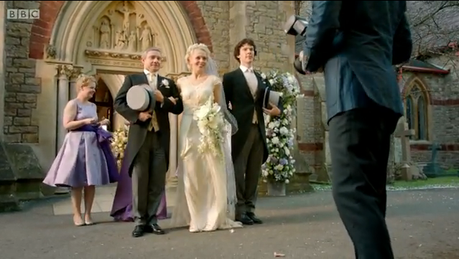
The developing relationship between Sherlock and Mary is another high point not only of this episode but the season as a whole (something that pays off in a big way in the final episode). Mary works her way into the dynamic perfectly and easily bounces off Sherlock. They almost feel like kindred spirits. The casting of Abbington is, like the rest of the casting in the show, a massive contributor to the ongoing enjoyment of the show.
#3 – His Last Vow
And this is what it all builds up to. The villain shown at the end of The Empty Hearse on a cluttered store room is revealed to be a Rupert Murdoch-esque media baron. Charles Augustus Magnussen has a seemingly endless amount of information on people of note, information that he uses to manipulate through blackmail. He’s already got the attention of Sherlock, who seeks access to his legendary vaults of information. Sherlock, however, is not in the right mindset, having fallen back on a severe drug habit in the absence of a real mystery to solve. He has also, quite unusually, gotten a girlfriend.
With Watson at his side he seeks to access Magnussen’s office, where it is revealed Sherlock’s girlfriend is employed (the relationship being a means to an end). Once inside Sherlock is shocked to find Watson’s new wife, Mary, holding Magnusses at gunpoint. It is revealed that she is former assassin who had started a new life and was under threat of exposure.
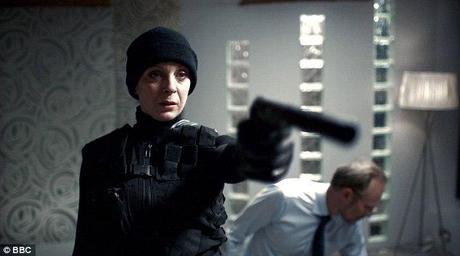
There was something about her.
The emotional turmoil of Watson in the light of these revelations forms a large part of the episode, which is a good move as Sherlock and Mycroft don’t make for the most emotionally engaging of characters. This narrative arc is well played out the reveal about Mary was brilliantly played out with hints through the entire season.
Magnussen makes for a good rival for Sherlock as we learn that he employs the same Mind Palace technique as Sherlock. Everything builds up to an unexpected ending that initially feels a tad unsatisfying, mirroring the cliff hanger of the previous season. That is, until the final twist comes to light – a promise for a fourth season.
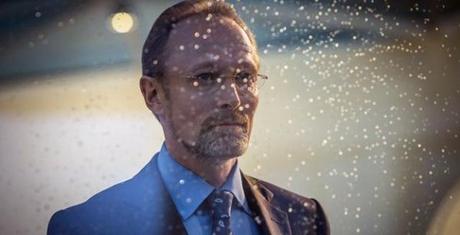
Now we’re left waiting. It’s downright disheartening so see ‘On Break: Returns (blank)’ next to the show so soon after it returned to our screens, but we’re not left unsatisfied. Season 3 maintains and continues the remarkably high standard set at the beginning of Sherlock. This series remains on of the best things happening on television in the modern age, if not in history.
